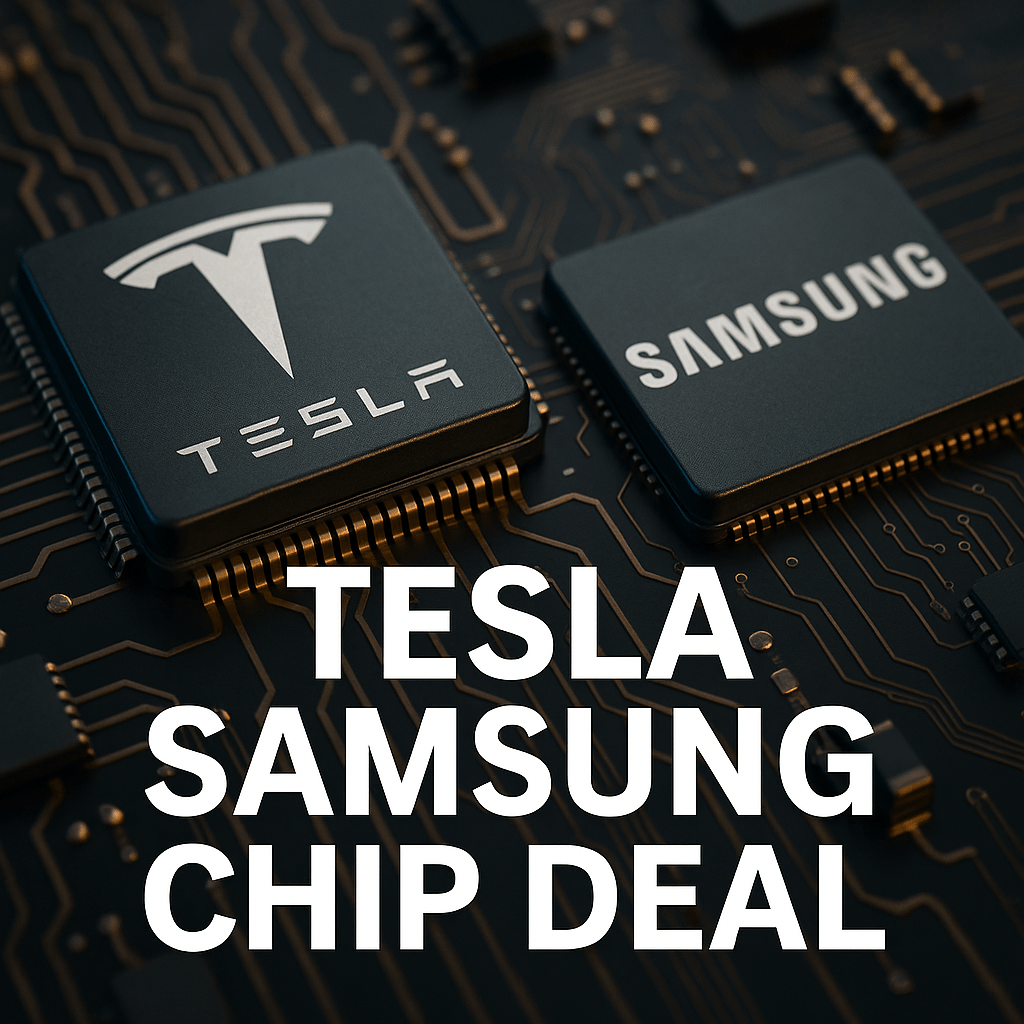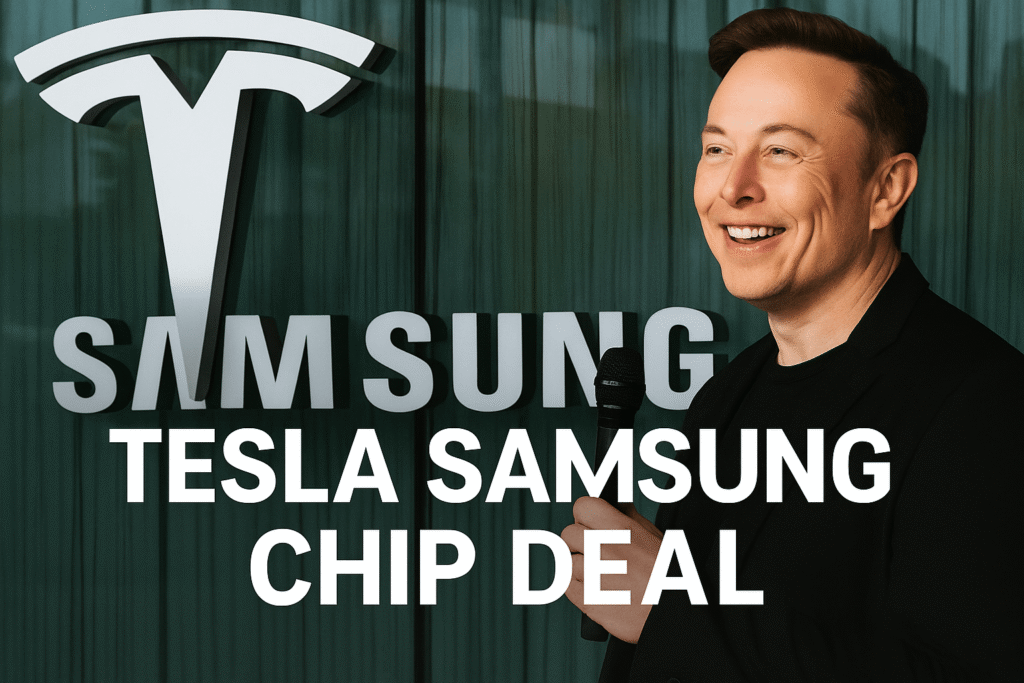|
Getting your Trinity Audio player ready... |

In a major industry-defining announcement, Elon Musk confirmed the $16.5 billion Tesla Samsung chip deal, marking a monumental moment in the semiconductor supply deal landscape. This isn’t just a routine business agreement, it’s a strategic alignment between two giants, Tesla and Samsung, with the potential to reshape AI chip manufacturing and global chip supply chains for years to come.
The Tesla Samsung partnership is built around a long-term agreement that will see Samsung Electronics produce advanced AI chips for Tesla. The official regulatory filing by Samsung confirmed the scope of the contract, which begins on July 26, 2025, and continues through December 31, 2033. Initially, the filing did not reveal the counterparty, but Musk later confirmed on X (formerly Twitter) that Tesla is indeed the recipient of the deal.
“Samsung’s massive new Texas fab will be dedicated to building Tesla’s next-generation AI6 chip,” Musk posted. “It is impossible to overstate this move’s strategic significance.”
This high-profile semiconductor supply deal will not only strengthen Tesla’s AI capabilities but also provide Samsung with a critical foothold in the competitive chip manufacturing market, especially as it races against industry leader TSMC.
Samsung Texas Fab to Power Tesla’s AI Vision
At the heart of the agreement is the Samsung Texas fab, a new manufacturing facility that will focus on Tesla’s AI6 chips, the next big leap in AI processing power. According to Musk, Samsung is already manufacturing Tesla’s AI4 chips, while TSMC will produce the AI5 version first in Taiwan, then in Arizona.
But it’s the Tesla AI6 chip, built in the United States at Samsung’s new fab, that has captured the tech world’s attention.
Samsung agreed to let Tesla optimize production processes, ensuring maximum manufacturing efficiency. This flexibility will give Tesla more control over innovation cycles, timelines, and integration with its electric vehicles and autonomous systems.
Musk emphasized his personal involvement, saying,
“I will be driving progress forward to accelerate development. This deal could grow beyond the $16.5 billion figure we’ve shared.”
Strategic Timing and Global Implications

The timing of the Tesla Samsung chip deal couldn’t be more critical. The global semiconductor market is under intense pressure, with AI computing demands rising exponentially. From autonomous driving to neural networks, Tesla’s operations rely on rapid, power-efficient AI computation. The Tesla Samsung partnership ensures a reliable, scalable supply of chips that are tailor-made for its evolving needs.
Samsung, on the other hand, is doubling down on its ambitions to lead the AI chip race. The company has lagged behind SK Hynix and Micron in the high-bandwidth memory (HBM) segment—a critical component for AI performance. SK Hynix, notably, has become a major supplier for Nvidia, the dominant force in AI hardware.
Samsung is now playing catch-up and aggressively pushing for validation of its latest HBM chips by Nvidia. Local media reports suggest the approval process may stretch into September, adding urgency to deals like the one with Tesla. If Samsung can deliver Tesla’s next-gen AI chips efficiently and reliably, it could dramatically shift the balance of power in global chip production.
Market Reaction and Business Forecast
News of the Tesla Samsung chip deal triggered an immediate surge in Samsung’s stock, which climbed over 6% on the day the filing went public. Investors see this as a clear sign of Samsung’s strategic resurgence in the foundry space.
Samsung is the world’s second-largest chip foundry, behind only Taiwan Semiconductor Manufacturing Company (TSMC). Its foundry services specialize in producing custom-designed chips for other companies. The addition of Tesla as a long-term client enhances its portfolio and could attract additional big-name partnerships in the future.
Earlier this year, Samsung announced plans to start mass production of 2-nanometer chips, a technology that allows for more compact transistors and enhanced power efficiency. These chips are vital for powering the next generation of artificial intelligence and machine learning models.
Reports also indicate that Qualcomm may be eyeing Samsung’s 2nm tech for future chip orders, adding further momentum to Samsung’s global manufacturing push.
What This Means for the Future of AI and EVs
Beyond just a single chip sale, the Tesla Samsung partnership has far-reaching consequences. This collaboration could redefine how AI hardware is developed, produced, and integrated into electric vehicles. Tesla’s edge in AI-driven self-driving technology, combined with Samsung’s foundry might, presents a potent formula for innovation.
Moreover, producing chips domestically through the Samsung Texas fab aligns with U.S. government initiatives to support domestic semiconductor production and lessen dependency on foreign plants. The move enhances supply chain security and positions both companies as strategic leaders in the AI era.






